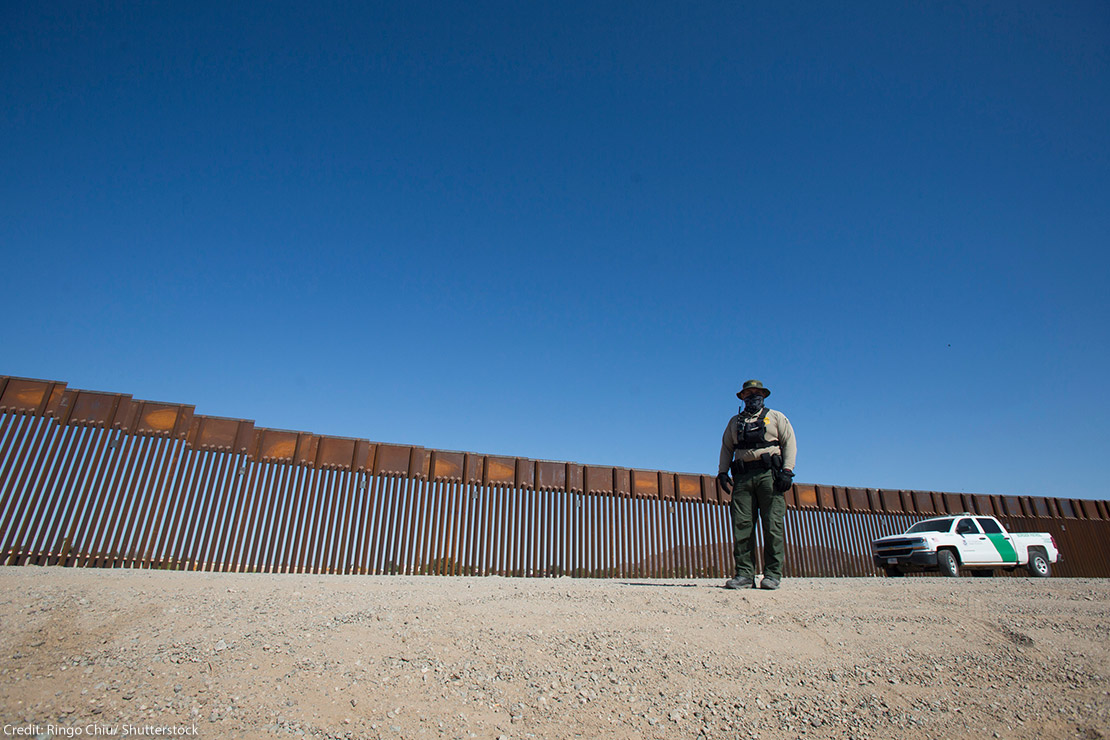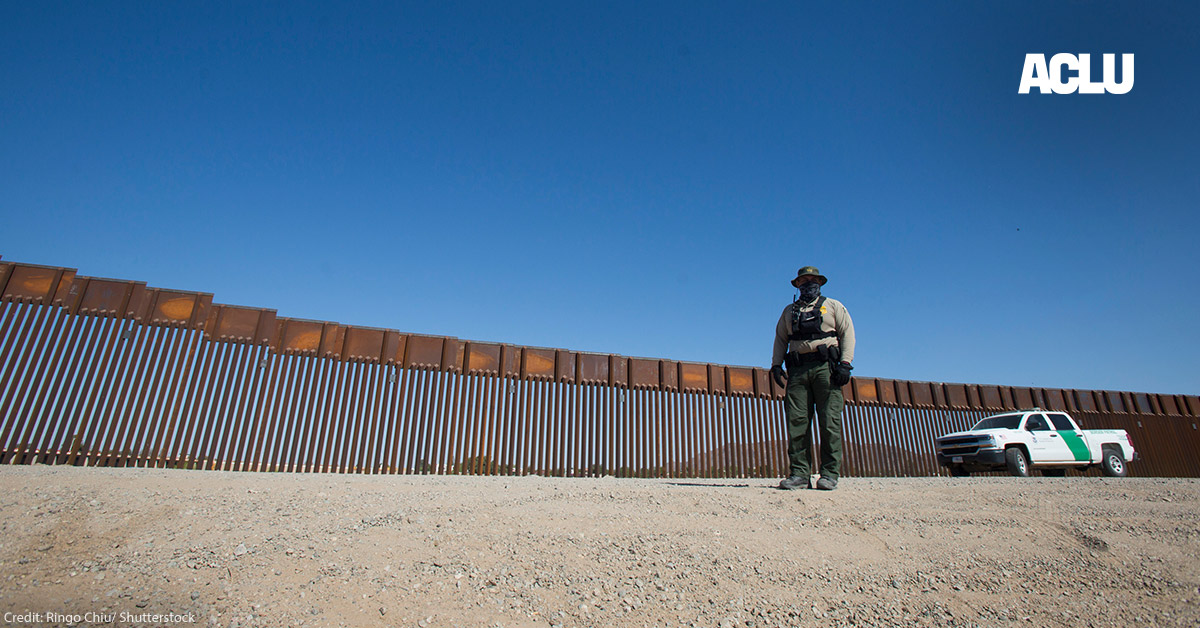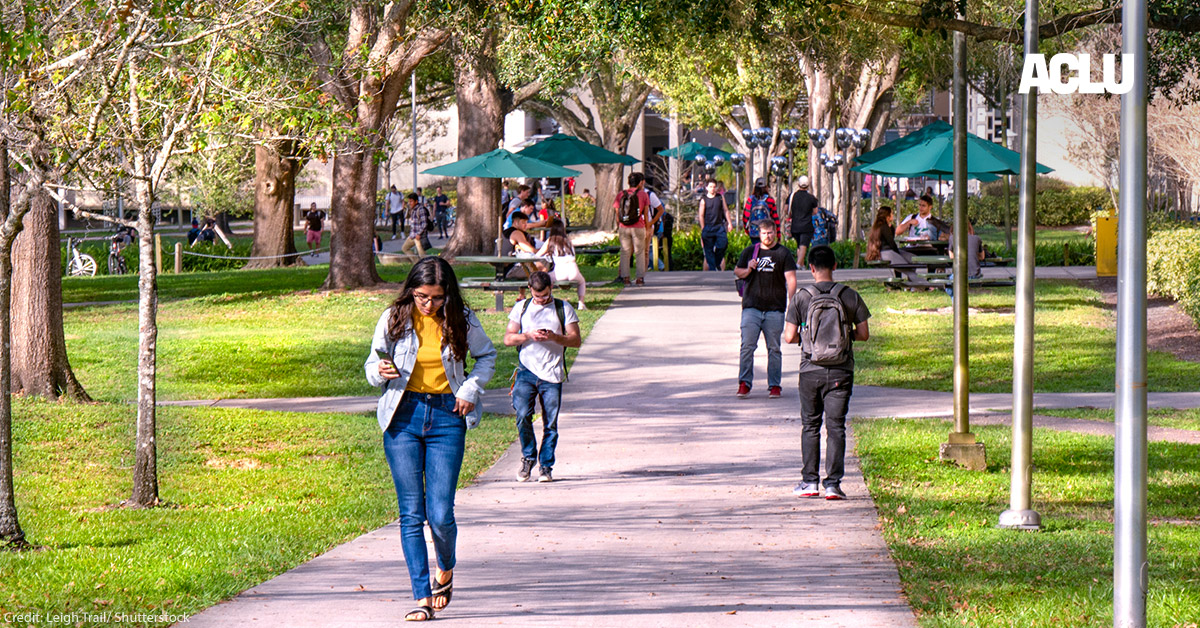Behind closed doors, the White House and Congress continue to negotiate major changes to border and immigration law as part of a larger deal on foreign military assistance. One of the rumored proposals is to expand a program called Family Expedited Removal management, or FERM.
Already, we’ve seen families in this program suffering harm and denied due process. But with the potential for a second Trump administration, the risks of this program are even more severe — including widespread surveillance.
What is FERM?
Operated by Immigration Customs and Enforcement (ICE), FERM rushes families seeking asylum through a fast-track deportation process within days of their arrival, preventing them from accessing crucial legal support and jeopardizing their ability to effectively present their asylum claims. Fewer than 3 percent of families are able to obtain a lawyer to help them prepare for their cases. Additionally, newly arrived parents have had to recount horrific details of their trauma and persecution, often in front of their children. ICE has significantly expanded the program since creating it in May, outsourcing work to a subsidiary of Geo Group, a private prison company with a track-record of human rights abuses. Currently, the program applies to around 500 families.
FERM subjects people to intense and continuous GPS surveillance with no justification other than their status as recently arrived migrants. Heads of household are required to wear ankle monitors and adhere to a home curfew from 11 p.m. to 5 a.m. These extreme physical surveillance measures not only punish families seeking asylum, but also treat them as public safety threats, without any individualized assessment. For people who have recently endured trauma on their harrowing journey to safety, these measures are particularly demeaning and frightening.
Why is this surveillance harmful for asylum seekers?
People forced to wear ankle monitors report experiencing physical pain, such as cramps and impaired circulation. They describe thoughts of suicide and social isolation, with one person likening it to a “modern day scarlet letter.” The fear of malfunctions or battery failure of a monitor can increase anxiety not only for the person wearing the monitor but also for their entire family. The combination of a home curfew and GPS monitor turns routine family activities — like a midnight run for baby formula or a visit to Urgent care with a child — into frightening risks of separation and deportation.
This is all unnecessary. Studies show that notifying individuals of upcoming court appearances through various means, including phone calls, recorded messages, mail, text messages, and emails is highly effective at ensuring people appear in legal proceedings. Moreover, providing access to legal counsel is far more effective; immigrant families with legal representation attend their immigration hearings 99 percent of the time, according to one study.
How would FERM affect other immigrants and Americans?
Bigger picture, Congress needs to consider how FERM normalizes 24-hour suspicionless surveillance. We should all be concerned when the government seeks authority to keep thousands, and potentially millions of people under constant watch without any pretext of criminal investigation. The people currently under the scrutiny of FERM are seeking sanctuary in our nation, often fleeing dictatorships and political persecution, making this surveillance even more perverse.
What would a second Trump administration do with FERM?
As Congress considers codifying and expanding this program, it should weigh the full ramifications. FERM’s electronic monitoring may seem benign, especially in comparison to keeping tens of thousands of people locked up in immigration detention for months or years. But imagine what a second Trump administration would do if Congress hands it authority and capacity to identify and locate immigrants around the clock, as some extremist state politicians are already threatening to do.
In a second Trump presidency, ICE could expand FERM to the over 3 million immigrants with pending cases or deferred removal. It could require them to wear GPS monitors or modify the current SmartLink app for continuous monitoring. They could also use this 24-hour location access to identify, track, and pursue its agenda for mass deportations, even using historical location data to track relationships between immigrants and their family members. If that happened, FERM would drive people further into the shadows instead of fulfilling its purported purpose of facilitating immigrants’ appearance in court and appointments.
FERM under a second Trump administration could also stifle dissent. The previous administration weaponized ICE and Customs and Border Protection to surveil activists and intimidate and attack protestors. We fear that similar, if not worse, actions may occur in a second Trump term. People under 24-hour GPS monitoring by ICE might be afraid to participate in protests and organizing — and this would affect not just them, but also people who live in a mixed-status household. Currently, one in every 15 U.S. residents live in a mixed-status household — that is, with at least one undocumented person.
What should Congress do instead?
We need Congress to pass immigration reform that modernizes our system to meet the challenges of the border. It should ensure families are not left in years of processing limbo, and that American businesses are able to access this labor source. That includes better court processing, ending administrative and legal backlogs, and providing a pathway to legal status for millions of our immigrant neighbors, loved ones, and co-workers.
But these solutions are not even part of the current negotiations. The ACLU is urging all members of Congress to reject any immigration and border deal that grants the anti-immigrant, extremist wish list of former President Trump in exchange for unrelated foreign aid.
Date
Friday, January 26, 2024 - 11:00amFeatured image








